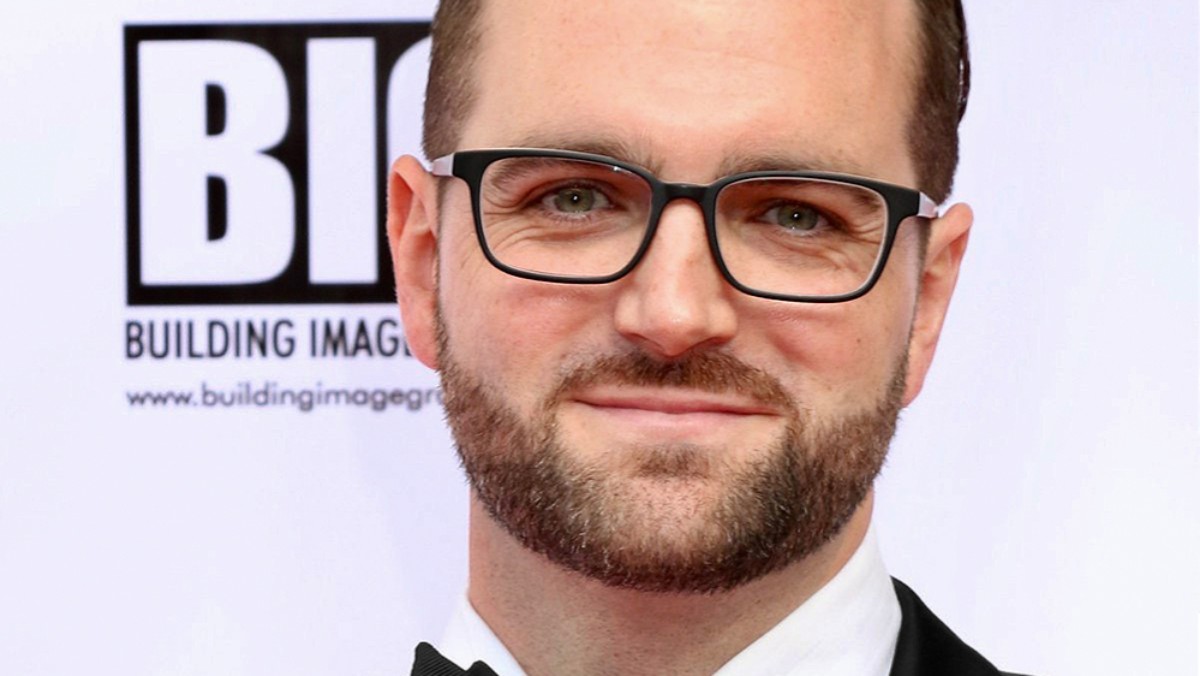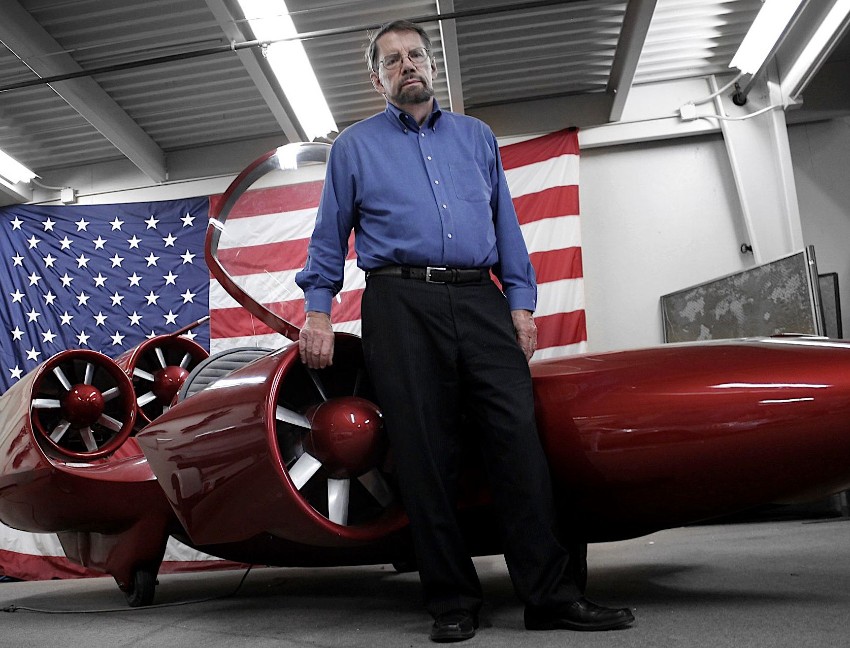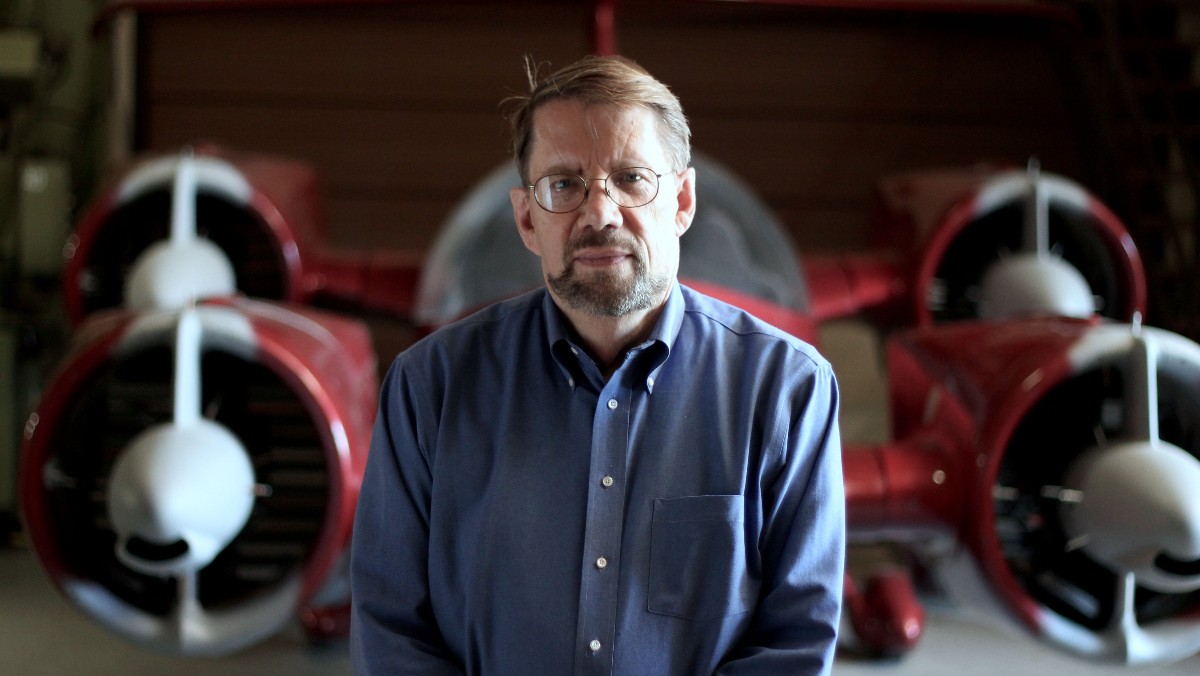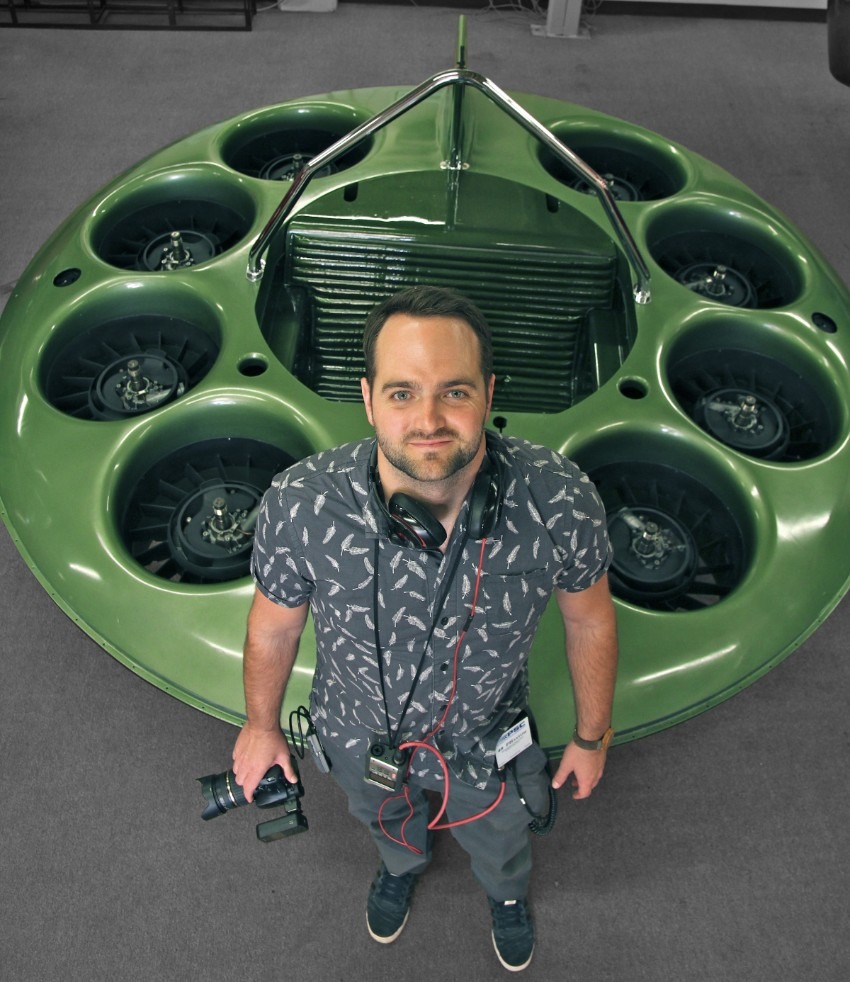
Scott Hardie is a writer, director, and producer of films, documentaries, commercials, and NFT projects. He was born and raised in Northern California, moved to the Bay Area for college, and later to Los Angeles for grad school. “When I’m not lugging around a camera, I’m usually playing dodgeball or yelling profanities at my favorite sports teams. My most recent film is the feature documentary, Father of the Flying Car,” says Scott Hardie.
indieactivity: How would you describe your work as a director?
Scott Hardie (SH): I would describe my work as a collection of colorful thoughts that are carefully sewn together. I really enjoy exploring aspects of science fiction and grounding them, making them relatable and tangible.
How did you get into directing?
Scott Hardie (SH): Back in undergrad I watched the documentary, Super Size Me. I thought that it was an interesting way to approach a documentary. So, at the age of 21, my friend Zack and I began filming our feature documentary, Harvest Young. The film investigated the marketing strategies of the wine industry and looked to understand why that industry was seemingly ignoring twenty-somethings in their ads.
Father of the Flying Car – Official Trailer
The film later premiered at the Sonoma International Film Festival. Shortly thereafter, we noticed that the advertising practices of the wine industry were changing and started to include a younger, twenty-something, audience. I’m not sure how much our film made a difference, but it did give us the confidence that, with a strong vision, ambition, and a lot of sweat equity, a small idea could become a reality. That film later helped Zack and I get into graduate film school. He attended Chapman University as an editor and I was accepted to USC as a director.
How do you choose a project to direct?
Scott Hardie (SH): I believe it’s always best to discover an emotional and/or physical relationship to the material which one is considering. I often like to examine aspects of art, technology, sports, or the collision of the three. My father is an engineer. My mother is an artist and I was an NCAA athlete. Inherently, there is a curiosity that I have for any material that relates to those subjects.
How did film school benefit you most?
Scott Hardie (SH): Beyond the nuts and bolts of filmmaking, I think film school establishes a professional standard for storytellers and encourages you to build a community of like-minded artists who grow alongside one another.

What filmmaking books do you recommend?
Scott Hardie (SH): I love filmmaking books! When I started out, the books that were the most helpful and inspiring were Aristotle’s Poetics, Bruce Block’s The Visual Story, and Robert Rodriguez’s Rebel Without a Crew.
Why would you choose an actor, writer, or producer? what do you look for?
Scott Hardie (SH): The question I ask myself after I meet with a potential collaborator is, “Does this person have the temperament, artistic ability, and communication skills to build a creative relationship?” If the answer is “no” to any of those questions then I tend to move on.
Briefly explain your latest work?
SH: My latest film is Father of the Flying Car, a feature documentary that chronicles the life of esteemed inventor Dr. Paul Moller and his fight to complete his life’s work, a flying car. The project took us 12 years to complete and is now streaming on Prime Video.
Explain key challenges in your last film?
SH: I went into Father of the Flying Car thinking that I was going to document the process of an inventor and the flight of his flying car. After learning that my subject may not be allowed to fly his invention, I had to re-examine the narrative and unearth what this film was truly about. I chose to focus on the man, not the machine. In doing so, I discovered a lot more intimate and honest stories about an inventor’s successes and struggles in America.

Explain a creative choice you took on the set of a recent production?
SH: I was recently assigned to document a professional fighter. To capture his ferocity we chose to shoot his training at a very high frame rate. The result reflected that of a great white shark attacking a seal, extremely slow muscle movements that punctuated the power of a kill.
How do you advise directors to find projects?
SH: I was given the advice a long time ago too, “Look in your own backyard for inspiration.” If you are a writer/director then my advice would be to start writing! You have the ability to create your own directing opportunity. Yes, you’re going to have to convince others that you can direct, but at least you own the script, which carries value. If you don’t write, then meet some writers and look to develop a project with them.
The best way to meet writers is to take a screenwriting class, even if you don’t have any ambition to write. You’ll likely discover a writer whose work you respect and may partner with them. Who knows, you might also discover a hidden ability and some creative confidence along the way.
How can filmmakers finance their projects?
SH: That’s the big question, isn’t it? Be brave and persistent. Private investors can be anyone. They can be made up of family or friends, but they can also include wealthy professionals who relate to your material. You can also research production companies and executive producers who have created similar projects. Hiring a casting director is another option.

They can potentially help you attach an actor whose attachment can open doors to financiers. Another avenue is crowd-funding, especially for short films. Find the community that your project is about and include them in your crowdfunding strategy. Finally, you can also consider applying to grants and film labs. If you’re able to land one, they usually continue to support you along your journey and open doors of opportunity.
What do you want from an actor during a production?
SH: During production I want an actor to feel heard, to be trusting, to be collaborative, to be vulnerable, to feel safe, and to be willing to work hard. I would hope they would ask the same from me, as their director.
How do you prefer to work with a producer during a production?
SH: I tend to work very closely with producers. I love the energy of a creative producing partnership and the discoveries that are unearthed throughout the process. I like to know the limitations, both monetarily and practically, of each project, so when an issue arises, I can expect clear and calm communication to lead us to a productive solution.
Who is your favorite director?
SH: That’s a difficult question to answer. When a movie series speaks to me, that director becomes one of my favorites. At points in my life that director has been Steven Spielberg, Walt Disney, or Martin Scorsese. At another time it’s been Spike Jonze, Darren Aronofsky, and Nicolas Winding Refn. Most recently, it’s been Alex Garland and Jordan Peele.

Why are they your favorite?
SH: I love these directors’ abilities to embrace their dark impulses; killing Bambi’s mom was a very dark impulse! All of these filmmakers have a wonderful ability to invite you into their vision without showing you the ‘welcome mat,’ but at the same time, they aren’t afraid to pull it out from underneath you.
What advice would you give aspiring directors?
SH: Be persistent, but also be patient. Additionally, it’s important to possess a secondary skill in the industry that will enable you to build relationships with other creatives, while providing you a living wage. For me, that was production sound. I spent 5 years after graduate school booming and mixing. These on-set experiences were incredibly valuable as I learned what it took to direct bigger projects. Eventually, a relationship that I made on set, lead me to my first professional directing opportunity.
What has been the best part of your career thus far?
SH: I am most grateful for the places that I’ve traveled to and the people that I’ve met along the way. I’ve been able to identify collaborators that I honor and trust. Making movies is a hard task, so having a solid team that can elevate a project is very important. I’ve had the great opportunity to work with many talented people, including cinematographer Andrew Jeric, music composer Fabrizio Mancinelli and actor Taj Speights, all of whom are rising stars in their disciplines. I think those creative relationships are very precious. Currently, I’m also very happy to celebrate the release of this documentary! You can learn more about Father of the Flying Car and the related NFT Collection
Tell us what you think of the interview with Scott Hardie. What do you think of it? What ideas did you get? Do you have any suggestions? Or did it help you? Let’s have your comments below and/or on Facebook or Twitter.
MORE STORIES FOR YOU
2025 Philip K. Dick Sci-Fi Film Festival Award Winners Announced
Vanessa Ly’s Memories of the Future Awarded Best PKD Feature
Dreaming of You by Jack McCafferty Debuts VOD & DVD for April Release
Freestyle Acquires “Dreaming of You” for April 15th Release
Hello Stranger by Paul Raschid set for London Games Festival & BIFFF
The film Is set for an April 10th Premiere at The Genesis Cinema in London (LGF) and BIFFF
Daydreamers Official Trailer by Timothy Linh Bui: Released by Dark Star Pictures
Daydreamers Vietnamese Vampire Thriller – May 2nd release
Afternooner by The Harrow Brothers: Funniest Movie of the Decade on VOD & DVD April
Freestyle Acquires “Afternooner” for April Release
Where We Stay by Florence Bouvy to Screen at CIFF
Where We Stay | CIFF Selected Drama About Friends Hiding Unspoken Truths
This Place by V.T. Nayani: Two Women in Love for the First Time on VOD & DVD March 25
Freestyle Acquires “This Place” for March Release









